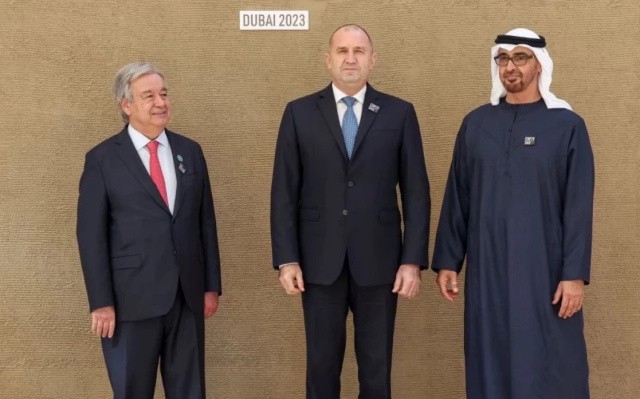Amidst the high-stakes stage of the 2023 United Nations Climate Change Conference (COP 28) in Dubai, a landmark declaration has emerged, supported by over 20 nations spanning continents, including Bulgaria. This collective effort aims to dramatically increase the global share of nuclear energy by 2050, with resounding endorsements from diverse leaders including Presidents Radev, Macron, Duda, Iohannis, and notable figures like Ulf Kristersson and John Kerry.
President Radev, representing Bulgaria, underscored the pivotal role of nuclear power in securing independence, fortifying security, and nurturing economic growth. Highlighting Bulgaria’s half-century track record in safe and efficient nuclear operations, Radev championed nuclear energy as a reliable solution in the world’s energy mix.
Acknowledging the challenges associated with renewable energy during the transition phase—such as weather dependency, limited affordable energy storage technology, and financial constraints—Radev emphasized the suitability of nuclear power as a more viable alternative.
John Kerry, in his inaugural address at the conference, emphasized a stark reality: achieving zero greenhouse gas emissions by 2050 necessitates integrating nuclear power or carbon capture and storage technologies based on empirical scientific findings.
The declaration, embraced by heavyweight nations including the United States, France, Sweden, the United Arab Emirates, Romania, Finland, the United Kingdom, Hungary, Canada, and the Netherlands, signals a collective commitment to steer global energy policy towards a nuclear-centric future.
This unified global stance positions nuclear energy as a linchpin in the fight against climate change, fostering optimism for a sustainable energy landscape as the world strives for a carbon-neutral future.

